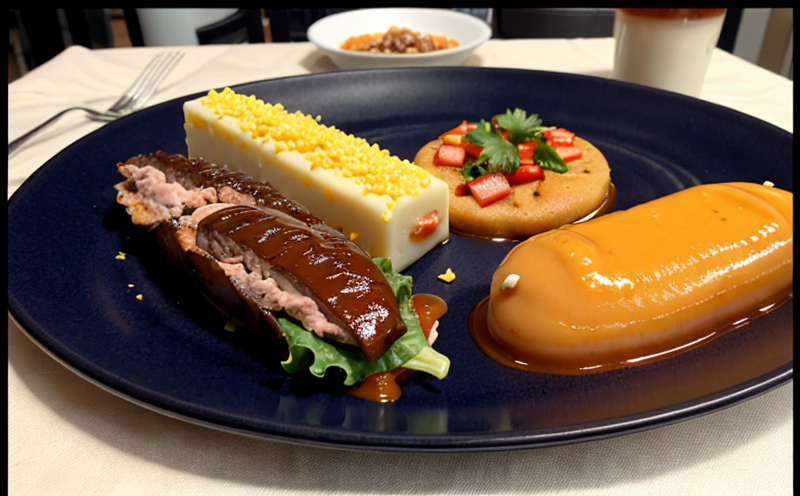FDA 21 CFR Part 177 Polyethylene and Polypropylene Testing
The Food Contact Notification (FCN) 1089, which is part of the FDA's regulation under Title 21 Code of Federal Regulations (CFR), Section 177.1520, provides approval for polyethylene (PE) and polypropylene (PP) materials used in food contact applications. This service ensures that these plastics meet stringent safety standards to prevent migration into food products.
Polyethylene and Polypropylene are widely used in the packaging industry due to their versatile properties such as low density, chemical resistance, durability, and ease of processing. However, when used in direct contact with food, it's imperative to ensure that these materials do not leach harmful substances into the food. This testing is critical for manufacturers aiming to comply with FDA regulations and ensure product safety.
The process involves several key steps:
- Material Identification: The first step in this testing is identifying the exact type of polyethylene or polypropylene being used. This includes understanding the additives, fillers, and other components that might affect migration behavior.
- Extraction Simulation: Simulating real-world conditions through a series of extraction tests helps to mimic how food interacts with the packaging material over time. These tests may involve soaking samples in various solvents or solutions that are representative of common food types.
- Analysis and Quantification: Once extracts are obtained, they undergo rigorous analysis using advanced techniques like GC-MS (Gas Chromatography-Mass Spectrometry) to quantify any potential leachates. This ensures that no harmful substances exceed the safety limits set by FDA regulations.
- Safety Evaluation: The data from these analyses is then evaluated against stringent international standards such as ISO, ASTM, and IEC guidelines to determine if the material poses any risk to human health.
The results of this testing are crucial not only for compliance but also for brand reputation. A single instance of non-compliance can lead to product recalls, legal actions, and significant financial losses. By ensuring full compliance with FDA 21 CFR Part 177, businesses can protect their brands from such risks.
Our laboratory uses state-of-the-art equipment and methodologies to provide accurate results that are both reliable and reproducible. This service is essential for any company involved in the production or distribution of packaging materials intended for food contact. It helps them stay ahead of regulatory changes, maintain a strong reputation, and ensure product safety.
Customer Impact and Satisfaction
The impact of FDA 21 CFR Part 177 Polyethylene and Polypropylene Testing extends far beyond mere compliance; it significantly enhances the overall quality and safety standards of packaging used in the food industry. For customers, this translates into increased trust and confidence in their suppliers and products.
Quality managers benefit from having detailed reports that not only meet regulatory requirements but also provide insights into potential risks. Compliance officers gain peace of mind knowing they are adhering to all necessary regulations, which can reduce the likelihood of legal issues or product recalls. R&D engineers find this service invaluable as it allows them to innovate while ensuring their new products remain safe for consumers.
Procurement teams appreciate the transparency and reliability that comes with this testing process. They know they are sourcing materials from suppliers who are committed to maintaining high standards, which ultimately leads to better supply chain management and reduced risks associated with non-compliance.
In summary, FDA 21 CFR Part 177 Polyethylene and Polypropylene Testing plays a pivotal role in ensuring the integrity of food packaging. It fosters trust among customers, supports regulatory compliance, enhances product safety, and promotes innovation within the industry.
Environmental and Sustainability Contributions
The use of polyethylene and polypropylene in food contact applications not only ensures product safety but also contributes positively to environmental sustainability efforts. These plastics are recyclable, which means that once they reach their end-of-life phase, they can be repurposed into new products rather than ending up as waste.
Our testing service aids manufacturers in selecting materials that have minimal adverse effects on the environment during production and disposal. By adhering to FDA regulations, companies contribute to reducing contamination risks associated with improper use of food contact packaging. This proactive approach helps create a more sustainable supply chain and fosters responsible manufacturing practices.
Moreover, this service supports broader sustainability goals by helping businesses design products that are safer for both consumers and the planet. Through rigorous testing, we encourage innovation in material selection and processing techniques, ultimately driving towards greener industries.
In conclusion, FDA 21 CFR Part 177 Polyethylene and Polypropylene Testing is more than just a compliance requirement; it represents an opportunity to enhance product safety while promoting environmental stewardship. By working closely with our clients throughout this process, we help them achieve these dual objectives effectively.
Competitive Advantage and Market Impact
- Enhanced Consumer Trust: Compliance with FDA regulations can significantly boost consumer trust. This is especially important in today’s market where transparency about product safety is highly valued by consumers.
- Avoidance of Legal Risks: By ensuring full compliance, companies avoid potential legal issues that could arise from non-compliance or accidental contamination incidents.
- Competitive Edge: Adhering to high standards can give businesses a competitive edge over those who do not. Consumers are increasingly choosing brands that demonstrate commitment to safety and sustainability.
- Innovation Opportunities: This service allows companies to explore new materials and technologies, leading to continuous improvement in product design and functionality.
- Long-Term Relationships: Reliable testing results build long-term relationships with customers and suppliers by ensuring consistent quality across batches.
- Regulatory Leadership: Being at the forefront of regulatory compliance positions businesses as leaders within their industry, attracting more partnerships and business opportunities.
In an increasingly competitive global market, these advantages can make a significant difference in how well a company performs. By incorporating FDA 21 CFR Part 177 Polyethylene and Polypropylene Testing into their operations, companies not only meet legal requirements but also set themselves apart as responsible and forward-thinking organizations.





